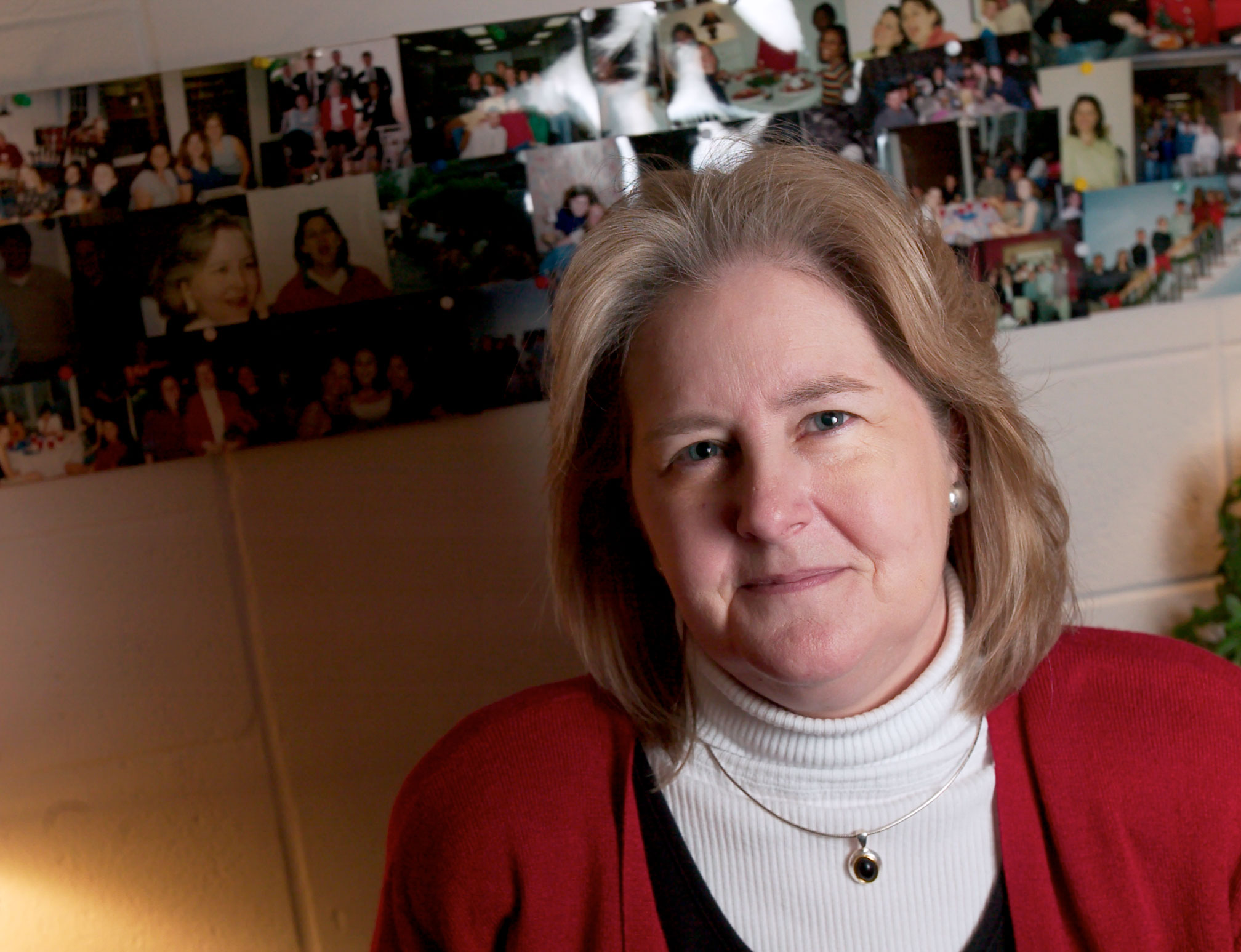Georgia Calhoun sees many students enter a counseling program with the notion that they’re going to go out and “fix” people.
“Oftentimes they’re surprised at the degree to which we invite them to look inside themselves,” she says. “Self-awareness and the ability to understand one’s assumptive world are key qualities for future counseling professionals, because only when you become aware of yourself can you start to understand the way in which other people are coming at things, often from a different perspective.”
Calhoun should know. She has spent the past decade preparing hundreds of UGA students to become professional counselors in a wide range of community settings.
She teaches five classes a week in the College of Education’s graduate programs in community counseling and counseling psychology-programs that rank among the best in the nation.
As coordinator of the nationally accredited master’s program in community counseling, Calhoun emphasizes a scientist-practitioner model that includes rigorous practicum requirements and opportunities for research.
Students praise her ability to blend theory, research and clinical expertise into the classroom. She provides them with clinical experience through her research projects, mentors them in how to prepare research for presentation and publication, and allows them to join her as active participants.
“Mentoring and supervising students in their development as counselors or psychologists is woven into every aspect of my work,” says Calhoun.
Supervising the beginning master’s student’s attempts to understand the “I-Thou” relationship so crucial to healthy therapeutic movement, guiding doctoral students through the anxious moments of their first classroom teaching duties, helping a counselor in training as she handles her first suicide crisis or first testimony in court, helping students prepare for presentations at national conferences-Calhoun’s involvement with her students is a critical feature of her career as a psychologist and counselor educator.
Calhoun’s research on juvenile offenders, and on the intervention programs created specifically for that population, has benefited both her students and the Athens-Clarke County community.
A decade ago, she and colleague Brian Glaser, also a professor of counseling, created the Juvenile Counseling and Assessment Program to study and address the psychological, emotional and educational needs of court-referred youth and their families. JCAP was a collaborative partnership among the local juvenile court, the state Department of Juvenile Justice, a regional youth detention center, the department of counseling at UGA and the Athens-Clarke County community.
“We created the JCAP as a way to train graduate students, research this particular population and, at the same time, provide a service to a really under-served population,” says Calhoun. “There are not a lot of people standing in line to work with juvenile offenders.”
Each year, JCAP provides about 120 juvenile offenders with therapeutic services. These youth represent diverse racial-ethnic backgrounds and varying socioeconomic statuses. They range in age from 9 to 17 and attend one of the public, private or alternative schools in the community. JCAP clients may also be detained at the Regional Youth Detention Center. Their offenses range from status offenses (i.e., truancy, runaway, underage consumption of alcohol) to felonies (i.e., aggravated child molestation, burglary, aggravated assault).
Calhoun still co-directs JCAP, but she is now focusing her research on a new topic: How students are supervised in counseling-preparation programs. It’s an issue that has always concerned her.


